What We’re Reading: Quick Reviews for TheHumanist.com Readers
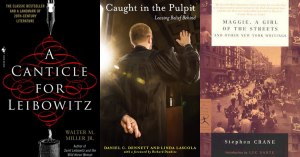
Check out what staffers at the American Humanist Association are reading in their free time!
|
|
|
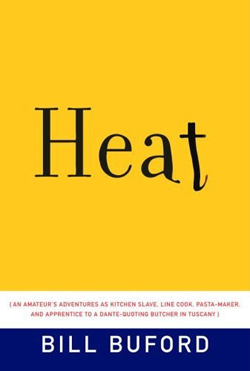 |
Maggie Ardiente, Senior Editor, TheHumanist.com: Most everyone who knows me knows I love eating out and trying new restaurants, so in my leisure time, I enjoy reading about anything related to food. I picked up Heat by New York Times writer Bill Buford on a visit to Powell’s Books in Portland last year. With the subtitle An Amateur’s Adventures as a Kitchen Slave, Line Cook, Pasta-Maker and Apprentice to a Dante-Quoting Butcher in Tuscany, I knew it had to be pretty interesting. I’m about halfway through, but I’ve already taken from it the biggest lesson: if you care about your sanity, never, ever work for Mario Batali. |
|
|
|
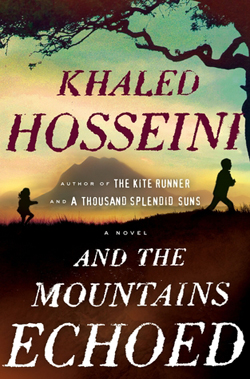 |
Jennifer Bardi, Senior Editor, TheHumanist.com: Right now I’m reading through a giant stack of Humanist and TheHumanist.com submissions! On top of my nightstand is And the Mountains Echoed by Khaled Hosseini—it’s a multigenerational family saga set in Kabul, Paris, San Francisco, and elsewhere. I’m also selectively browsing Stress Less (for Women) by health and science journalist Thea Singer. (Newsflash: stress is bad for you! Best get back to that stack of submissions…) Also there in the mix is The Hitchhiker’s Guide to the Galaxy, which I finally started reading last summer and never finished. Could that be what’s blocking my road to inner peace? |
|
|
|
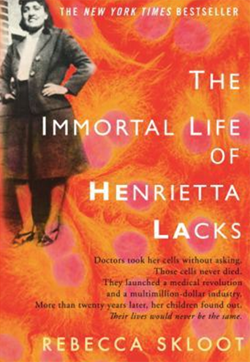 |
Rachael Berman, Grassroots Coordinator: I am currently reading The Immortal Life of Henrietta Lacks by Rebecca Sklott. I was originally drawn to this non-fiction novel not only because it had received phenomenal reviews but because a good portion of the book takes place in Baltimore (where I am from). I have started to read the book and honestly I can not put it down. Rebecca Sklott is a beautiful writer and has done a tremendous amount of research about Henrietta Lacks and her family. It is a must read for anyone interested in science, ethics and race-related issues. |
|
|
|
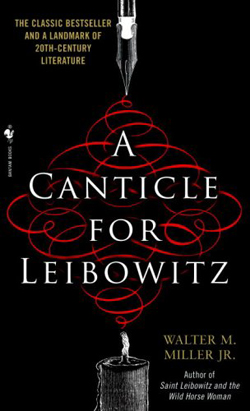 |
Peter Bjork, Managing Editor, TheHumanist.com: I’m currently reading A Canticle for Leibowitz by Walter M. Miller Jr. It’s a post-apocalyptic novel published in 1960. Building on the Cold War anxiety of the time, the book follows the lives of a group of Catholic monks several hundred years after an all-out nuclear war devastates much of North America. Their order was founded by Isaac Leibowitz, a scientist who survived the war, nominally converted to Catholicism, and dedicated the remainder of his life to preserving scientific knowledge from the hordes of survivors who blamed the nuclear apocalypse on technological progress. I’m enjoying the read so far, though I’m eager for more backstory on what has happened since civilization so drastically changed. While at this point in the book, it appears that the Catholic Church is the last hope for preserving human knowledge, I’m sure I’ll soon see the consequences of having all information controlled by the Catholic hierarchy. |
|
|
|
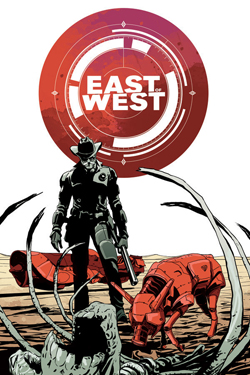 |
Matthew Bulger, Legislative Associate: I’m reading a comic called East of West, which is a dystopian fantasy thriller with heady political elements as well. The ongoing series is extremely interesting if you like literature in the vein of 1984 and Brave New World, and the art and coloring is absolutely fantastic. Currently, nine issues have been published, with the next issue coming out later in March. For those who have never read a comic but are looking for an entry into the medium, I highly suggest you pick up East of West at your local comic store or download it from the numerous comic apps available on tablets and PCs. |
|
|
|
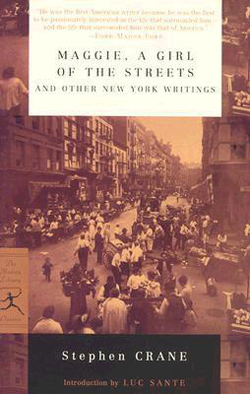 |
Fred Edwords, United Coalition of Reason Director: Maggie, a Girl of the Streets, a novella by Stephen Crane (famous as author of the Red Badge of Courage and a freethinker). It’s probably his greatest literary work, showing in all its gritty frustration what life was like in the Bowery tenements of New York City in the late 1800s. Here we see Maggie as an impoverished girl growing up amid violence in the neighborhood and domestic abuse in the home. Yet she somehow manages to keep her dignity and decency intact (but not her diction) as she grows into a young woman. But then she falls in love with one of her brother’s old gang buddies, a street-wise young man who has no long-term interest in her. And in this situation she runs smack into the repressive sexual mores of her time that regard any sexually-active young woman as “ruined.” Will she survive the contradictions of the cynicism and moral repression around her, or will life in the Bowery finally bring her down to defeat? I haven’t yet found out! |
|
|
|
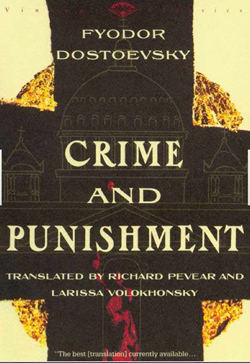 |
Meghan Hamilton, Executive Assistant: Currently I’m re-reading one of my all-time favorite books, Crime and Punishment by Fyodor Dostoyevsky. Although dark and somewhat depressing, I find it extremely fascinating. I enjoy Dostoyevsky’s ability to infiltrate the reader’s mind. It’s psychological madness and it’s awesome. |
|
|
|
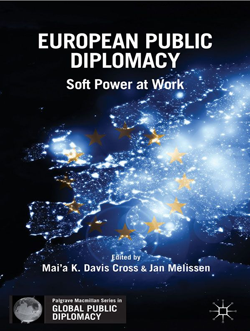 |
Nicklas Jansler, Intern, Center for Humanist Activism: I’m attending graduate school so I’m mostly doing required reading, but there’s one in particular that I’m finding fascinating, namely European Public Diplomacy: Soft Power at Work by Mai’a K. Davis Cross and Jan Melissen. The book gives me a thorough understanding of almost all aspects of European public diplomacy. Public diplomacy is commonly defined as how a nation’s government projects itself to external audiences in ways to improve foreign public perception of that nation. The book draws new attention to this overlooked field of study and encompasses the multiple levels of the European Union. It has given me vital theories to understand and analyze EU public diplomacy—internal as well as external. |
|
|
|
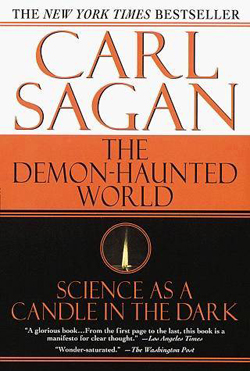 |
Apurva Parikh, Advocacy and Grassroots Intern: I love reading—sometimes five or six books at a time. Most of my reading is dense philosophy, sometimes Indian (for example right now I’m reading commentaries on both the Yoga Sutras of Patanjali and the Brahma Sutras of Badarayana), and Western philosophy. I also enjoy books on metaphysics, philosophy of mind, and consciousness. That being said, it’s nice to read a more popular book once in a while, and the most “normal” book on my reading list is Carl Sagan’s The Demon-Haunted World. If you want to delve deep into the issues surrounding pseudoscience and come out more convinced than ever that it engenders no constructive contribution in our modern world, this is your book. It is a book that puts science on a pedestal, not just through the stamp of authority, but through the voice of reason. With passionate but lucid argumentation, Sagan shows that in the effort to understand the reality we live in, science will always trump the various manifestations of the pseudo-scientific method. In a time where there is a lot of feel-good pseudoscience flowing through popular culture, it’s important to be reminded that “it is morally as bad not to care whether a thing is true or not, so long as it makes you feel good, as it is not to care how you got your money as long as you have got it” (quote by Edmund Way Teale in his book Circle of the Seasons), and Carl Sagan does just that. |
|
|
|
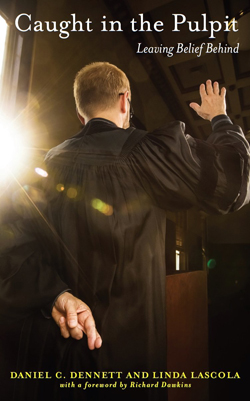 |
Roy Speckhardt, Executive Director: I’m enjoying the chance to read Caught in the Pulpit, Leaving Faith Behind, by Daniel Dennett and Linda LaScola. Just published in December, this book examines the situations of preachers who aren’t believers. It hones in on the experiences of specific priests and pastors and connects the dots to show how and why this has become so very common. Chatting with Linda outside the context of the book, thought is already being given to the next step—all those nontheists in the pews. I can’t wait to learn more about them. And as a fan of history, my next book will be The Men Who United the States: America’s Explorers, Inventors, Eccentrics, and Mavericks, and the Creation of One Nation, Indivisible by Simon Winchester, which I got as a gift from one of our humanist celebrants. |
Tags: Staff Picks
